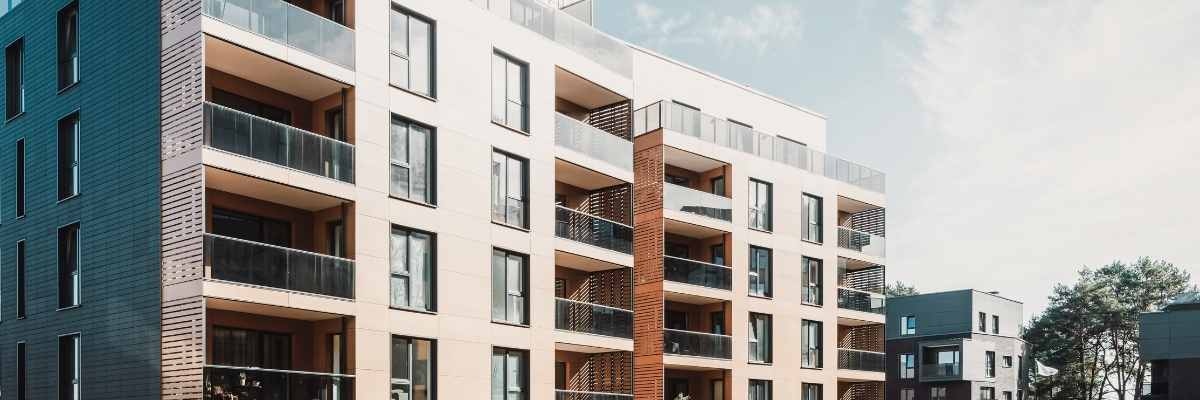
Within neighbourhood communities, there are a set of rights and obligations, both for owners and tenants, which are reflected in the Horizontal Property Law and in the Community Statutes. Often, we are unclear about what these prohibitions are. In this article, we will discuss some of these general regulations.
Índice de contenidos
- 1 Prohibitions under the Horizontal Property Law
- 2 Regulations in the Community Statutes
- 3 Examples of most common prohibitions
- 4 Can entry to a neighbourhood community be prohibited?
- 5 Particularities in relation to prohibitions in a community of owners
- 6 Violation of the Community’s prohibitions
- 7 Necessary requirements to prohibit activities in the neighbourhood community
Prohibitions under the Horizontal Property Law
Generally, a neighbourhood community knows its rights and obligations. However, there is a lack of knowledge about the rules regulating their prohibitions.
Within the Horizontal Property Law in Article 7, point 1, it is established that owners and tenants of a building are prohibited from making architectural and structural modifications. This includes installations or services that could affect the safety of the building and infringe on the rights of other owners.
In case of violation, both the Community of owners and any neighbour can take legal action to prevent its realization or request the demolition of the works and return to their original state.
Also, the prohibition of activities that must be mentioned in the Community Statutes due to their annoying, harmful, dangerous, unhealthy or illicit nature.
Regulations in the Community Statutes
Many of the questions you owners ask us are related to internal regulations or the Community Statutes. This regulation must be written and approved by the community and can be modified by the neighbours at any time.
To do this, the president of the community must convene an extraordinary assembly in which all changes are made known to be approved unanimously. The change of the statutes will be presented in the Property Registry.
Examples of most common prohibitions
- Limitations for pets. Although it is generally each autonomous community who regulates it.
Prohibition of the use of common areas as long as the owners or tenants are not up to date with their payments. - Annoying noise continuously and at any time as long as they exceed the decibels marked by law and can be demonstrated.
- Illegal activities such as drug trafficking, prostitution, gambling games, etc.
- Unhealthy activities within the property or dangerous, like the manufacture or treatment of substances that may endanger neighbours.
The Community Statutes can include other activities that are not allowed, both privately and communally.
Can entry to a neighbourhood community be prohibited?
According to Law 49/1960, of July 21, on horizontal property, among the possible prohibitions of a community of owners is not to prevent a neighbour from accessing such a community.
Particularities in relation to prohibitions in a community of owners
This rule affects delinquent neighbours, who while not up to date with payments, will not have a vote at the meetings. The same happens with tenants, who can attend the meetings of the boards, but will not be able to vote. Although it is true that there is the possibility that the owner delegates his vote to them.
So if there is an annoying neighbour in the building where you live, as long as they have their payment obligations up to date, they will be a member of this community and will have a vote at the owners’ meetings. This also includes neighbours who own parking spaces or commercial premises in the building, who can exercise their vote according to the community statutes.
Therefore, and in summary, only delinquent neighbours and those who are not owners have restrictions, such as the use of common areas or not having a vote at meetings, within the community. Among the rights of neighbours is not the right to impose prohibitions in the community of owners in access to the boards. If you have doubts, it is best to receive professional advice.
Violation of the Community’s prohibitions
In the event of non-compliance, the president or vice-president may issue a verbal or written warning to the neighbour who violates a prohibition.
They must expressly indicate that they will initiate legal actions if they do not cease their annoying behaviour. If the fault persists, they can go to court if the board of owners so agrees.
Necessary requirements to prohibit activities in the neighbourhood community
It is quite common for neighbourhood communities to consider the possibility of prohibiting activities that may be annoying or dangerous for residents.
Article 7.2 of the Horizontal Property Law states that it will not be allowed to carry out activities considered harmful, as long as it is included in the Statutes.
In this sense, the Supreme Court establishes some requirements for the validity of these clauses.
They must be clear and precise and specify point by point what actions are prohibited and not generalize. To be valid against third parties, they must be registered in the Property Registry.
They must conform to the general interest of the Community of Owners. For example, a specific prohibition of tourist rental for third floors is not valid.
They cannot contravene morality, good customs or public order. For example, it is not valid to prohibit the installation of a communist ideology political headquarters.